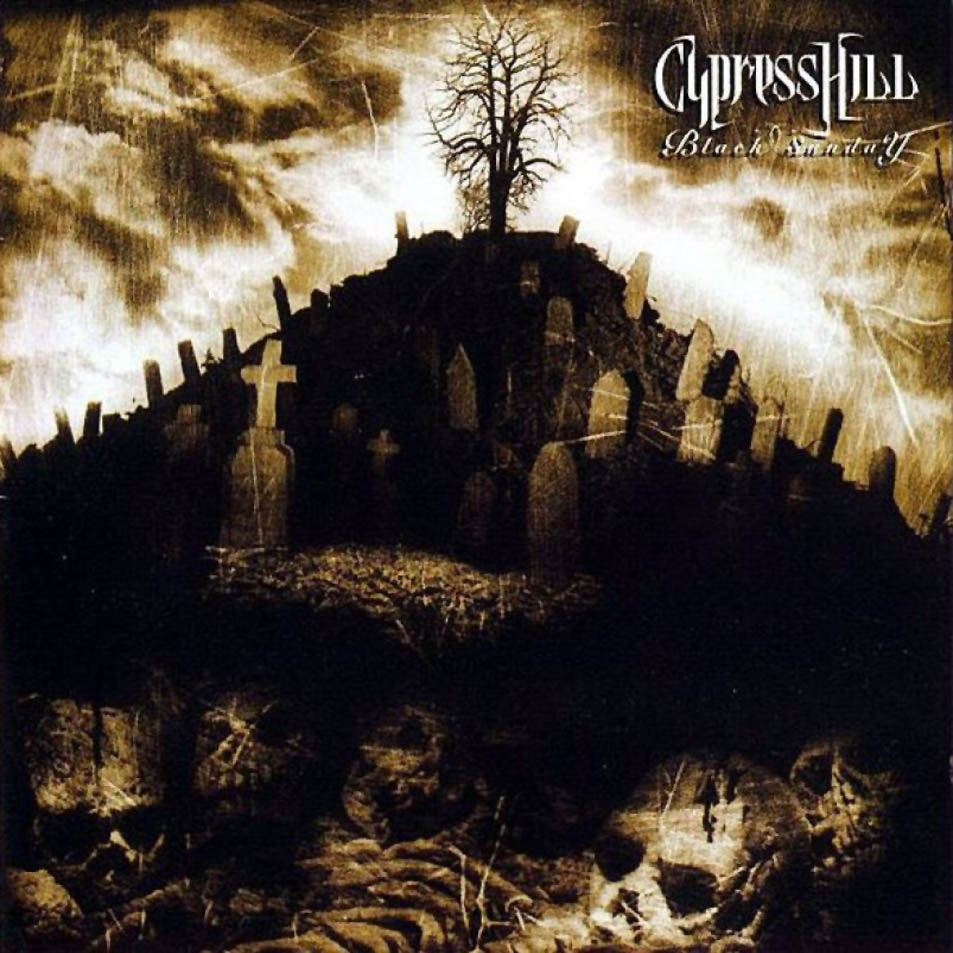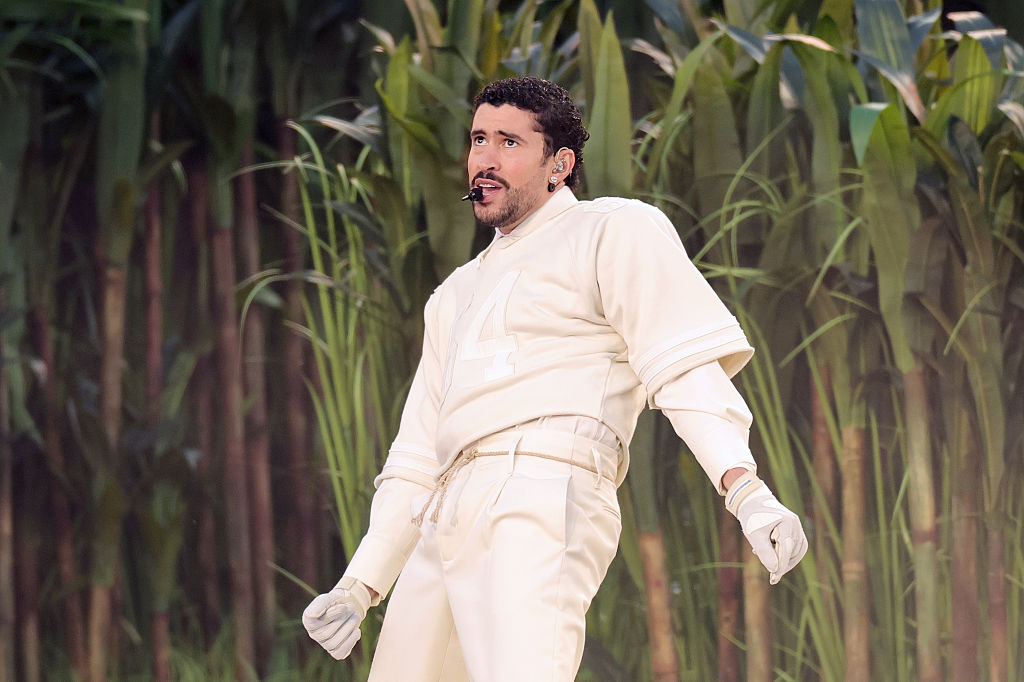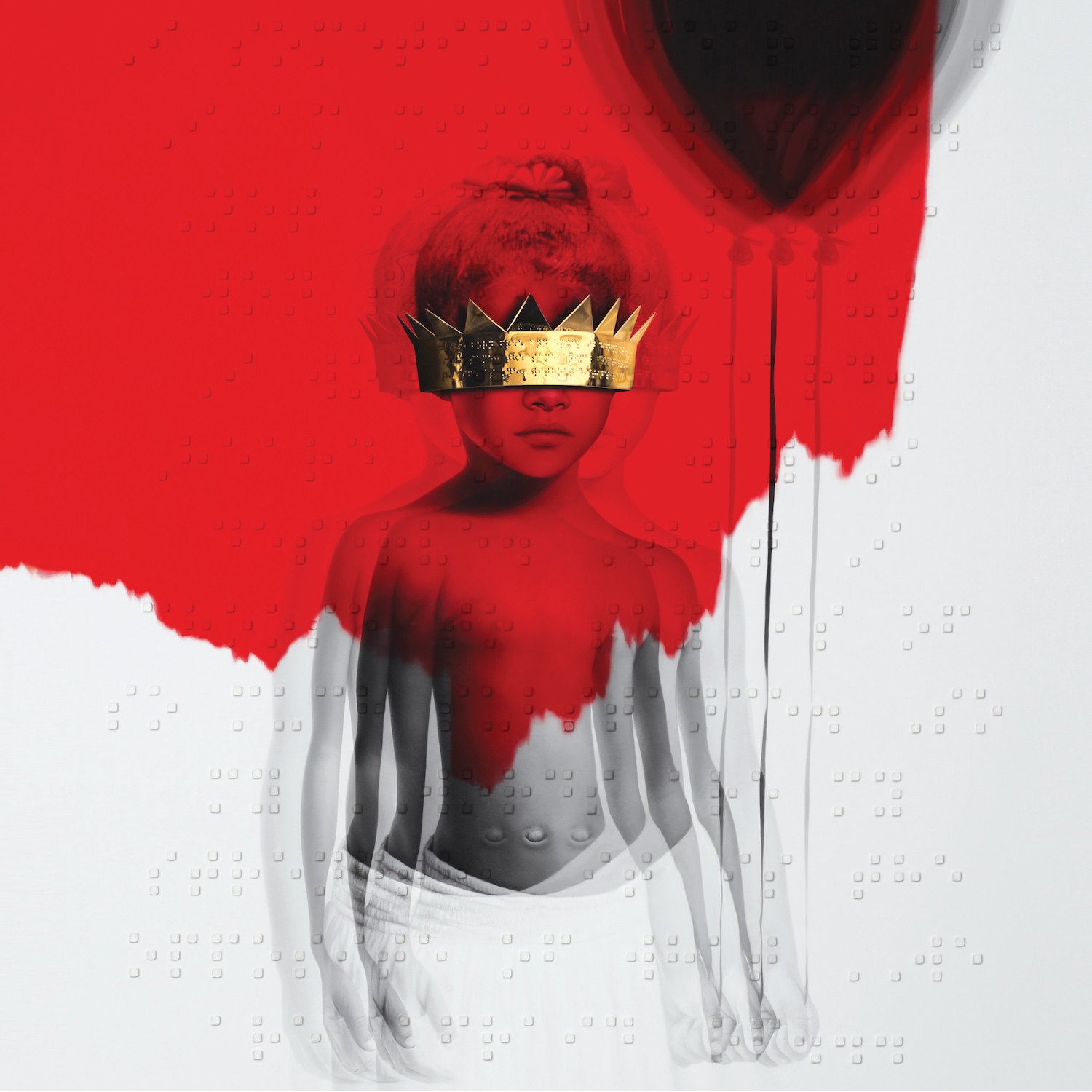About a year after Cypress Hill released Black Sunday, their second album, I went to see Pulp Fiction. During that scene when Vincent Vega walks into Mia Wallace's house, when the opening bars of Dusty Springfield's "Son Of A Preacher Man" chimed out, I muttered "hits from the boooong" to myself, in my teenage version of that adenoidal B-Real honk. I mean, I actually said it out loud. On a date. And for years afterward, I still had trouble hearing "Son Of A Preacher Man," an absolute classic song, as anything other than "Hits From The Bong" without rapping on it. That's how deep Black Sunday had bored its way into my cerebellum. I wasn't alone in that. I know I wasn't alone because Black Sunday debuted at #1 and sold more than three million albums. And I also know that because two years after Cypress Hill released Black Sunday, went to see Cypress Hill live.
They were billed third from the top at Lollapalooza 1995, but the assembled white-kid massive at that West Virginia horse-racing track was way more amped for them than for Sonic Youth or Hole or Pavement or Beck or the Mighty Mighty Bosstones or any other band on the bill. When Cypress Hill were onstage, my dad was obliviously reading a book under a canopy off to the side of the infield while I got high on joints that were being passed freely around by generous audience members. When Hole and Sonic Youth brought pretty light shows, those light shows seemed like a treat specifically made for all the kids who'd illicitly gotten high during Cypress Hill's set. Also a treat: Cypress Hill's entire set. They performed in front of a massive inflatable Buddha with a pot leaf on its belly. At one point, they wheeled-out a ten-foot tall pipe with a smoke machine in it. B-Real rapped while crowd-surfing, which I'd never seen before and which I've never seen anyone pull off remotely as well. They had a bongo player. They'd just released their third album, the negligible III: Temples Of Boom, but Black Sunday was the real reason they got to be the mid-'90s dorm-room version of Spinal Tap that I saw before me that day. They weren't the first rap group that crossed over, but they were the first rap group, it seemed to me, that specifically and successfully targeted bratty alt-rock dorks like me.
Part of that crossover was canny marketing, like the Sabbath-looking mountain-of-skulls cover art. Part of it is smart, catchy writing; the phrase "Insane In The Brain" is almost a hook unto itself. Part of it is probably unconscious racism; plenty of kids in my middle school thought that the light-skinned Mexican/Cuban B-Real was white. (DJ Muggs, who produced almost the entire album, actually is white.) But most of it is just the simple reality that Black Sunday is an excellent album, one with the immersive depth and peaks-and-valleys construction of a great classic rock album.
Among a certain breed of rap fans, it's an article of faith that Cypress Hill's self-titled 1991 debut is their best album. It's the first time Latinos in rap found a wide audience, and it's an early glimpse at L.A.'s Latino culture, a thing that hadn't gotten much play in rap beyond local stars like Kid Frost and Mellow Man Ace (younger brother of Cypress Hill's Sen Dog). It had a bright, goofy sense of humor and an inventive and cartoonish sampling aesthetic, and you can hear both immediately in the "Duke Of Earl" sample on the immortal "Hand On The Pump." That album introduced B-Real's amazing adenoidal Bugs Bunny rap voice, which was nothing like his regular voice. (He'd tried it out while fucking around in the studio one day, and it stuck. At that Lollapalooza show, he kept it going even between songs, a commendable commitment to character.) It has "How Could I Just Kill A Man," a hardass classic. But for my money, Black Sunday is the better album. It's the album where their sample-created funk became deeper, darker, more cinematic. It's the one where they sunk fully into their weed-haze, the one where they alternated effortlessly between bluster and languor. It's the one where the samples sounded less like samples and more like pieces of music that existed entirely unto themselves. It's the one where all the lines were fun to yell at other kids on the playground. Maybe that last part is the most important.
The Cypress Hill of Black Sunday were better than anyone else, possibly in rap history, at the straight-up rapped hook, the phrases repeated at just the right cadence and tenor to get them stuck permanently in your brain. The interplay between that B-Real voice and Sen Dog's understated boom (the basis for every Latino-gangbanger character in every shitty B-movie and video game ever) already existed on the first album, but it found its greatest expression in the hooks on Black Sunday, with B-Real stretching his lines out into locker room taunts ("A to the motherfuckin kaaaaay, homebooooooy") and Sen Dog repeating them, with emphasis, like a fired-up Ed McMahon ("A to the K!"). On "Insane In The Brain," the group's greatest and best hit, that chemistry is in top form, B-Real mocking and Sen Dog hammering, both of them locking into Muggs's cartoon bounce and backwards horse-whinny sound effect. And that same chemistry runs even to the deep cuts, including the ones where Muggs apparently runs out of other records to sample and just starts sampling Cypress Hill records.
For all the charismatic chemistry that the two rappers displayed, Muggs's production on Black Sunday makes the album's best case for its continuing musical importance. On that first album, his beats started to get a bit harsh and assualtive when you listened to them all at once. But on Black Sunday, he switched things up, creating some softer and more ominous moments that did wonders for the album's replay value. The lush, crackling bassline on "Cock The Hammer" starts out sinister and unaccompanied before the breakbeat and the opera sample kick in at the exact right moment; it's chilling. The opening track, "I Wanna Get High," is nothing but goofy stoner-talk lyrically, but its track has another indelible swampy bassline, as well as a droning loop of what sounds like bagpipes. All the other tracks, even the hardest ones, still have some psychedelic swirl to them. Even though Cypress Hill never really seemed threatening, that sampling sensibility would be a huge influence on the harder and more ominous East Coast records that would follow shortly behind it, like Wu-Tang Clan's Enter The 36 Chambers and Mobb Deep's The Infamous, as well as the first Goodie Mob and OutKast albums. You can even hear loud echoes of it in Maxinquaye, the debut album from eventual Muggs collaborator Tricky. Rap was already figuring out how to be dark and moody and inward before Muggs, but his work on Black Sunday sure accelerated the process.
Of course, that Cypress Hill -- the quietly innovative, deep-immersion one -- was gone by the time they started wheeling out giant pipes onstage. In a lot of ways, Cypress Hill were the first hard-ass credible rap group who marketed themselves tirelessly to white rock kids, to the exclusion of their base audience. That campaign made them festival standbys and led to terrible songs like "Rock Superstar," and it essentially stopped their progress as an innovative force within rap. It also opened up avenues for massively successful groups like the Fugees and OutKast, who might not have been the forces that they were if Cypress Hill hadn't opened up certain ears. Those guys didn't have to turn themselves into cartoons to become mega-successful, but that's probably just because Cypress Hill had been there first, evening the playing field and making successes like theirs possible. So even in their descent into fun, goofy irrelevance, Cypress Hill were an important group. And before that descent, they gave us Black Sunday, the album that made that descent possible, and it still sounds incredible today.
[videoembed size="full_width" alignment="center"][/videoembed]






